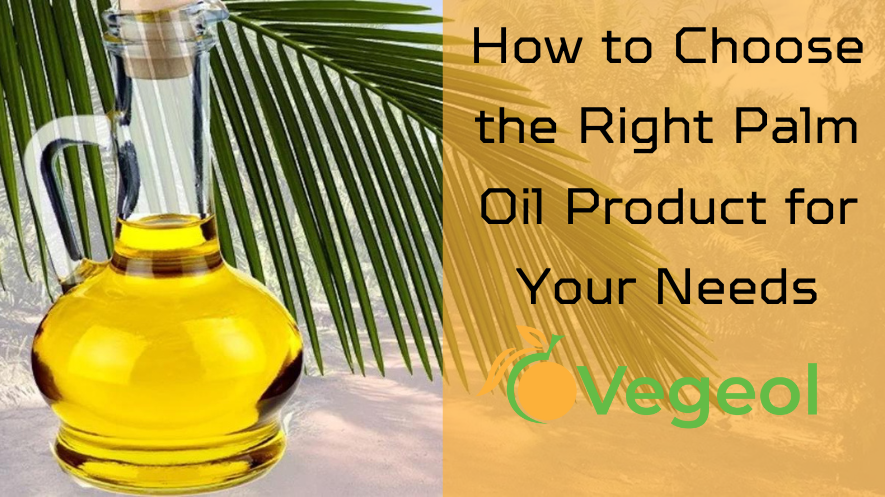Palm oil is one of the most widely consumed cooking oils in the world. It’s high in saturated fats which can raise “bad” cholesterol and triglycerides, increasing your risk of heart disease.
However, it’s free of trans fats and has a higher smoke point than most other vegetable oils which makes it popular. So why is it bad for you?
It’s High in Saturated Fats
Palm oil is an edible vegetable oil, but unlike the trans fats it’s often used to replace, it’s not a healthy choice. It’s high in saturated fat, which raises bad cholesterol and triglycerides and increases the risk for heart disease.
It’s also a more efficient vegetable oil to grow than other alternatives, so it’s in many products we use daily. The key is to look for “RSPO” or similar certifications on the product label, which tells you that the manufacturer sourced the palm oil sustainably.
Although it’s better than the artery-clogging trans fats in old-fashioned shortenings and butter, it doesn’t make for healthful frying oils or salad dressings. The best choice for a healthier diet is unsaturated vegetable oils, like olive oil or canola oil.
The fatty acids in these plant-based oils are less saturated than palm oil, which makes them a better choice for your heart and overall health. But, even though they contain fewer unhealthy saturated fats than palm oil, there are still some concerns with the way these oils are processed.
A study published in the journal Nutrients found that palm oil and other tropical oils are high in trans fatty acid, which has been linked to inflammation in the heart. While the authors of the study admit that more research is needed to fully understand the relationship between dietary saturated fat and cardiovascular disease, they also say that the results indicate that there’s no need for any dietary restrictions based on palm oil.
Another concern is that dietary saturated fats in palm oil can increase low-density lipoprotein (LDL) cholesterol, which raises your risk for heart disease. However, a review of 51 human dietary intervention trials found that while the lipid profiles of the participants were altered by replacing their regular cooking oils with palm oil, the change was minimal compared to the changes seen when using other types of vegetable oils, such as the polyunsaturated fatty acids and monounsaturated fatty acids commonly used in alternative cooking oils.
In addition, the studies included in this meta-analysis all showed that a low-cholesterol diet containing palm oil reduced oxidative damage to cells and tissues caused by ischaemia-reperfusion injury, which is a major cause of death in patients with cardiovascular disease.
It’s Not Trans Fat Free
Palm oil became popular in the 1990s when manufacturers started to look for alternatives to unhealthy trans fats and partially hydrogenated vegetable oils. It’s less saturated than butter and doesn’t have any trans fats, which makes it a better choice for foods than higher-saturated vegetable oils, such as sunflower or safflower oil. It also has a high smoke point and is stable at high temperatures, making it a good choice for cooking oils and other processed foods.
It’s also used in cosmetic products like lipstick because it’s rich in antioxidants that reduce signs of ageing. It’s also used to make glycerine, which is an ingredient in many medicines and cough syrups. It’s also a renewable source of energy, which makes it an attractive alternative to fossil fuels.
Because it’s found in so many processed foods, there’s a good chance you consume it without even knowing it. It’s in everything from pizza, doughnuts and chocolate to deodorant, toothpaste and lipstick. The good news is that it’s not as harmful as the trans fats it replaced in foods sold in the United States because it doesn’t raise your levels of low-density lipoprotein, or “bad,” cholesterol and can help to lower triglycerides, which are another type of fatty acid in your blood.
However, it’s not a healthy choice if you’re trying to follow a heart-healthy diet. In fact, it’s still a saturated fat that should be limited to no more than 13 grams (about one tablespoon) per day. And while it’s not as bad as the trans fats, other oils, such as olive and canola oil, are better for your heart health because they’re unsaturated fats.
It’s also important to support companies who have committed to using sustainable palm oil, such as Frymax. By giving them positive feedback and avoiding those that haven’t, you can help to encourage them to keep up with their commitments. Plus, you’ll be helping to protect the habitat of wild animals such as orangutans and Sumatran tigers who are losing their home in rainforests that are being cut down to produce palm oil.
It’s Not Good for the Environment
Palm oil is an ingredient in many products from food to cosmetics. It’s also a key component of biodiesel. The main problem with this popular oil is the way in which it’s produced. To make this ingredient, large areas of tropical forests—primarily in places like Borneo and Sumatra—are cleared to plant palm trees. This deforestation is harmful on both a global and local level. This is because, when forests are destroyed, carbon dioxide is released into the atmosphere which can cause global warming. Furthermore, the habitats of endangered animals are destroyed which has been known to lead to their deaths.
The good news is that there are ways to consume this product without contributing to the harm it causes. You can opt to purchase unrefined palm oil, which is not as heavily processed as its refined counterpart. However, this option is not as common as the refined version and may be more difficult to find on store shelves.
In addition, you can also help reduce the amount of palm oil in your diet by choosing products that are labeled as free of it. There are a variety of different brands that offer products with no added palm oil, so you can be sure to find something that suits your needs and tastes.
When you do come across a product that does contain palm oil, try to read the label carefully to determine if the amount used is sustainable. This will ensure that the company is limiting its impact on the environment. It’s important to remember that, in general, saturated fats are not as healthy as other vegetable oils. As a result, you should try to avoid them whenever possible.
When it comes to a balanced diet, you should aim to get no more than 5% to 6% of your calories from saturated fats. This is equal to about 13 grams of saturated fat per day for a 2,000-calorie daily diet. To limit the amount of saturated fat you consume, opt for other vegetable oils that are lower in saturated fats such as canola or olive oil.
It’s Not Good for Your Heart
Palm oil is a solid fat that comes from the fleshy mesocarp of the palm fruit (Elaeis guineensis). It is not to be confused with palm kernel oil, which comes from the seed. Palm oil is known for its high saturated fat content, which has fueled anti-saturated fat campaigns in the United States. These campaigns were based on the claim that saturated fats raise LDL cholesterol and increase heart disease risk.
Aside from containing a lot of saturated fat, palm oil also contains a significant amount of monounsaturated fats. This means that, when eaten in moderation, it can be beneficial for your health. Palm oil is also rich in vitamin E, which can have antioxidant effects. However, if you’re taking any medications or have certain medical conditions, it’s best to avoid this oil.
When it comes to cardiovascular diseases, the saturated fats in palm oil can lead to an increased risk of heart attack or stroke. Moreover, these fats can increase LDL or ‘bad’ cholesterol levels and triglyceride levels. These fats can also increase the inflammation in your body, which increases your risk of heart disease and other disorders.
In contrast, unsaturated fats like those found in olive oil are considered healthy and can lower your risk of heart disease. Palm oil is also high in a type of saturated fat called palmitic acid, which can boost bad cholesterol and triglyceride levels, as well as reduce HDL or ‘good’ cholesterol levels.
While it’s true that a diet high in saturated fat increases your risk of heart disease, research has shown that replacing saturated fats with unprocessed carbohydrates and polyunsaturated fats may actually lower your risk of heart disease. The saturated fats in palm oil are not as harmful as trans fats, which are linked to higher cholesterol and triglyceride levels.
In addition to reducing saturated fat intake, it is important to eat a varied diet that includes foods from all food groups. This will help to protect your overall health and prevent nutritional deficiencies. As with all foods, palm oil should be consumed in moderation.


